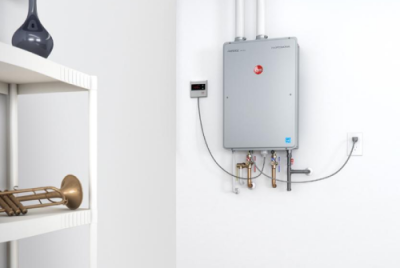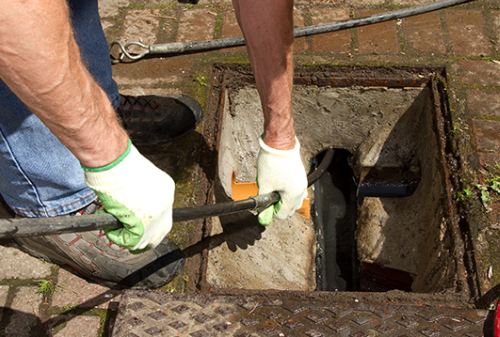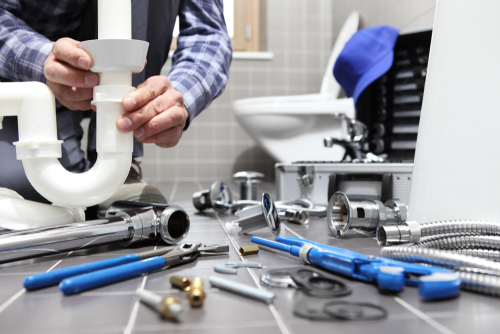Have you ever seen one of those magic tricks where a faucet pours freshwater, only for it to be revealed that there’s no source behind the faucet head? Believe it or not, many of our customers in the area believe that’s how a tankless water heater works. Honestly, too many people think that their hot water just magically comes hot, since it doesn’t come from a hot water tank, where does it come from?
Well, today we’re going to answer that question. We’ll talk about the science behind tankless water heaters in Sydney. We can dive into specifics about how these systems work, how much energy they consume, and what kinds of homes would be perfect for them.
It’s not magic, but it’s still fun to understand how your water heater works—especially if you ever run into any problems with it!
Tankless Means No Tank
We get that this bit of information might be obvious, but stick with us. Traditionally, tanks were used to hold water and heat them to a reasonable degree to be used by you when you turn on the shower, faucet, or laundry machine. How Tankless Water Heaters Works? Utilising a tank meant that only so much water could be kept at this temperature before the tank ran out and had to refill. Many of you out there might find this situation familiar, where you’re waiting on your tank water heater to refill and your shower suddenly turns cold since there’s no hot water left! This can be incredibly frustrating and has really been a tough conundrum to crack through the past 30 years.
Instant Heating
What if we just cut the tank out of the equation entirely? By streaming water through a pipe that’s superheated by a gas burner, couldn’t you effectively provide instant hot water without the need for a tank? Eureka! That’s exactly how a tankless water heater works! By using a continual stream of water that’s heated to appropriate temperatures when you need it, you get access to unlimited hot water in Sydney.
Also, keep in mind that a conventional tank water heater requires the tank to be heated for the whole day. If you decide to run a hot faucet at any point, the water must be heated at that moment for the faucet to work. This results in something called standby heat loss, which means energy is constantly being wasted to keep your hot water tank heated. With a tankless system, this waste never happens. Tankless water heaters have earned a reputation for being much more energy-efficient than their conventional counterparts, because they don’t waste energy keeping a tank hot and only burn fuel when it’s needed!
Is It Right for Your Home?
That’s the most important question to ponder. If you’ve got a family that’s constantly upset because their hot water isn’t lasting enough for reoccurring showers or baths, then a tank water heater might solve those problems while lowering your bills. Though, if you’ve got multiple bathrooms and different people all using hot water at the same time, you’ll need to make sure your tankless system is sized correctly to handle your hot water usage, otherwise your water will come up cold!
A tankless, or on-demand, hot water heater is an economical choice for heating water for laundry, dish-washing or showering. These heaters do not store hot water, so you’re not using energy to heat the water, just to have it standing in the tank. Instead, when a flow-activated switch comes on, the heat exchanger turns on and heats the water as you need it. Tankless water heaters come in point-of-use styles like a coffee pot plumbed into the water system, or as whole-house units. But, like other things in your home, they need to be maintained and, sometimes, you might need to troubleshoot and repair them. For most issues, this is an easy project that you can do yourself.
it can take up to 20 years for your tankless heater to pay for itself with energy bill savings. So, it’s an investment worth preventative care. With routine maintenance, you can avoid having to repair your water heater, and it will last much longer. The process is pretty simple, and you don’t need a lot of special equipment. A quick flush every six months should do the trick. A tankless water heater is also called an instantaneous heater and warms up water on demand for you and your loved ones. Some are believed to be more energy efficient and can supply more hot water than a regular heater, leaving them in high demand. Unfortunately, most tankless heaters do not come with warranties. What can you do when yours breaks? A professional tankless water heater repair service can keep your home running effectively. Water heaters can break down at any time and put a serious hold on your home’s daily activities.
Call Apex Plumbing Services if you are in need of a tankless water heater repair in Sydney!












